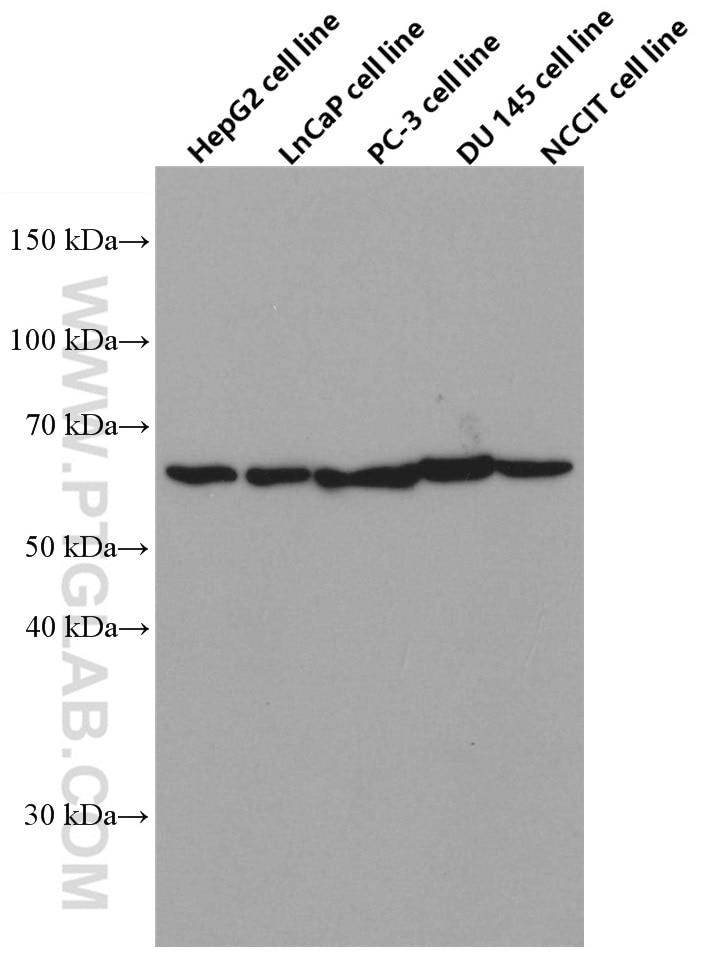Validation Data Gallery
Tested Applications
Recommended dilution
| Application | Dilution |
|---|---|
| It is recommended that this reagent should be titrated in each testing system to obtain optimal results. | |
Product Information
66560-1-PBS targets HYAL1 in WB, Indirect ELISA applications and shows reactivity with Human samples.
| Tested Reactivity | Human |
| Host / Isotype | Mouse / IgG1 |
| Class | Monoclonal |
| Type | Antibody |
| Immunogen | HYAL1 fusion protein Ag18183 相同性解析による交差性が予測される生物種 |
| Full Name | hyaluronoglucosaminidase 1 |
| Calculated molecular weight | 435 aa, 48 kDa |
| Observed molecular weight | 60 kDa |
| GenBank accession number | BC035695 |
| Gene Symbol | HYAL1 |
| Gene ID (NCBI) | 3373 |
| RRID | AB_2881921 |
| Conjugate | Unconjugated |
| Form | Liquid |
| Purification Method | Protein A purification |
| UNIPROT ID | Q12794 |
| Storage Buffer | PBS only , pH 7.3 |
| Storage Conditions | Store at -80°C. |
Background Information
Hyaluronic acid (HA) is a glycosaminoglycan that is believed to have numerous important biologic functions, including modulation of cell proliferation, migration, and differentiation, as well as the regulation of extracellular water and protein homeostasis. It is also an integral structural component of cartilage and other tissues and acts as a lubricant in joints. Hyaluronidases are a family of enzymes that catalyse the degradation of HA. In humans, there are five functional hyaluronidases: HYAL1, HYAL2, HYAL3, HYAL4 and HYAL5 (also known as SPAM1 or PH-20); plus a pseudogene, HYAL6 (also known as HYALP1). HYAL-1 is present in many tissues and is predominantly found in the plasma and urine (PMID: 16600643). In addition to its function in normal cellular hyaluronan turnover, human HYAL-1 is implicated in cancer proliferation, angiogenesis, and inflammatory diseases (PMID: 17503783).
